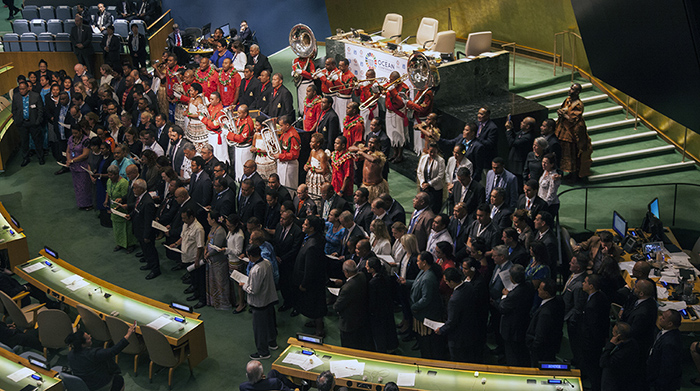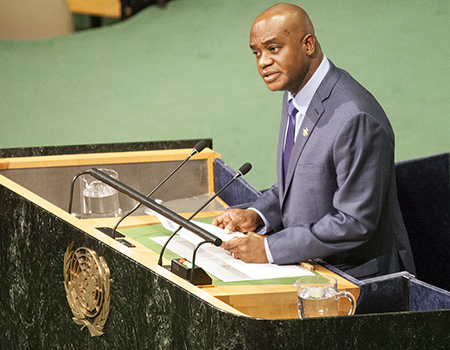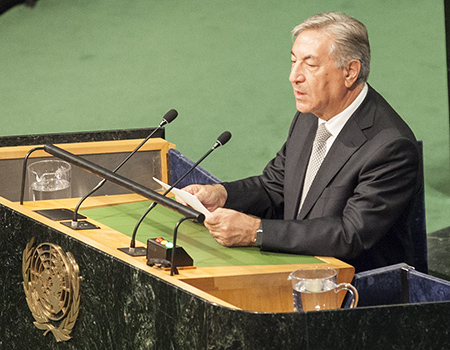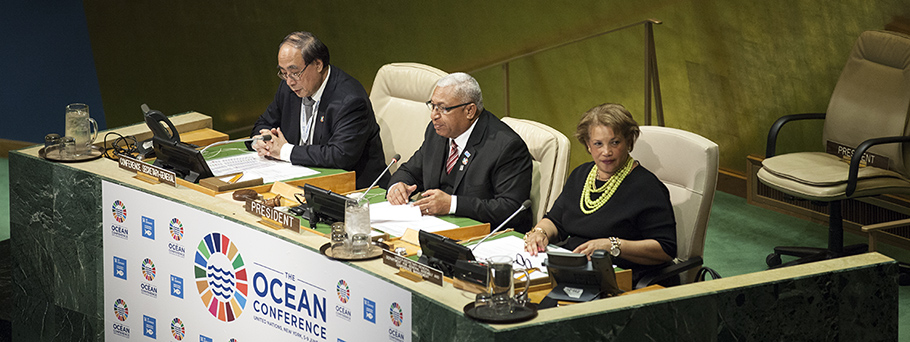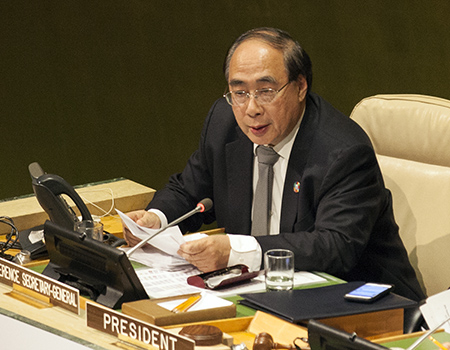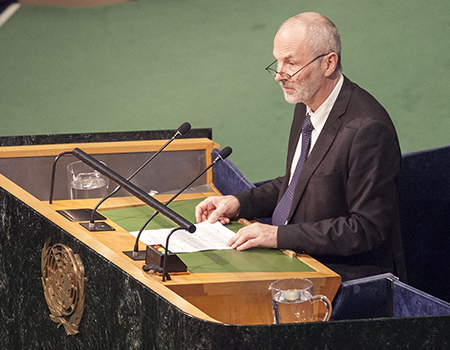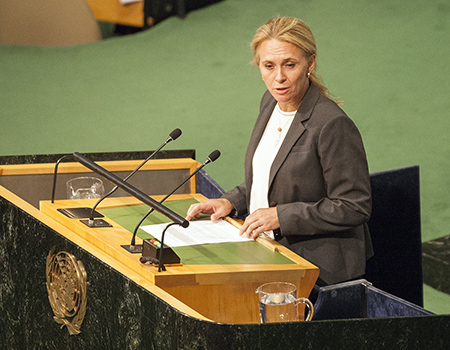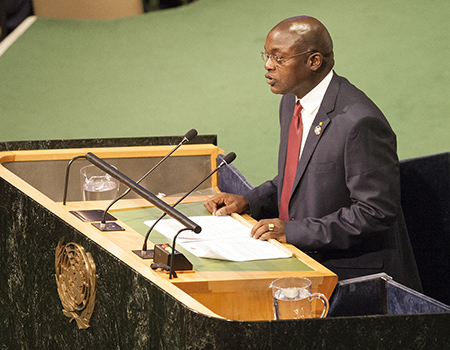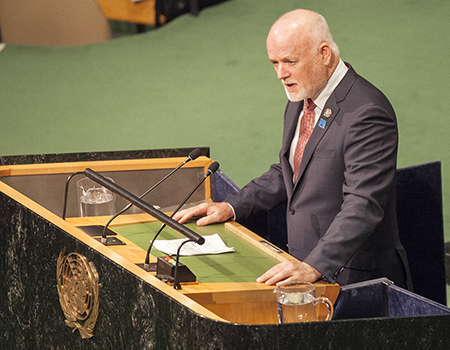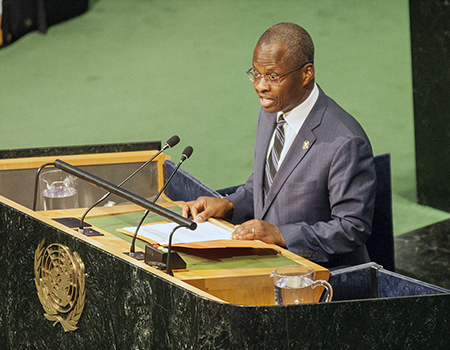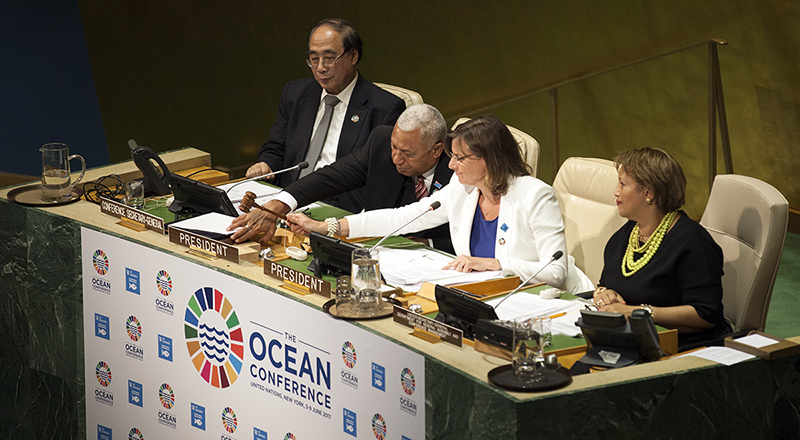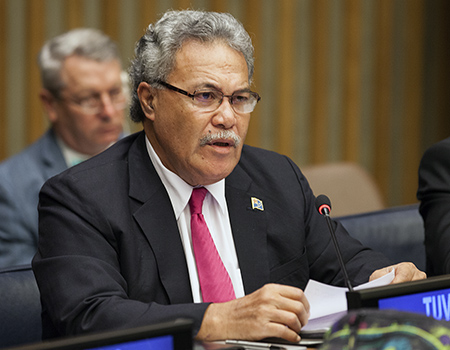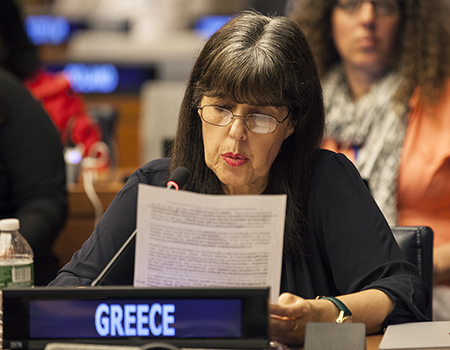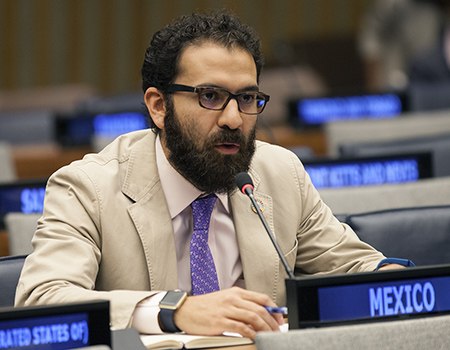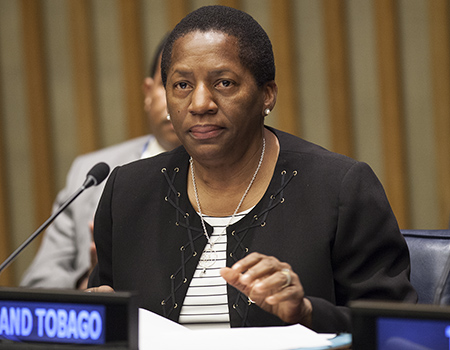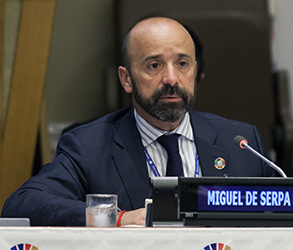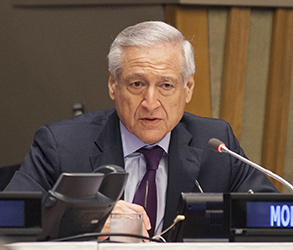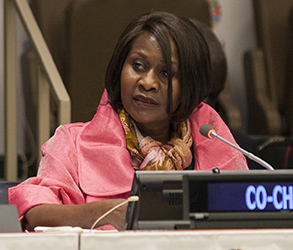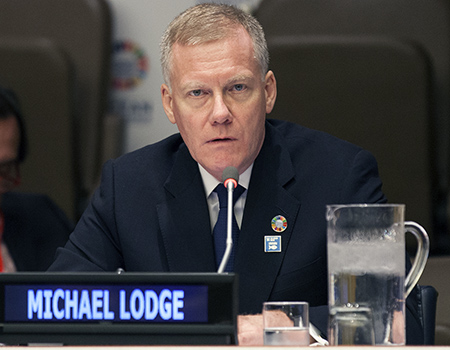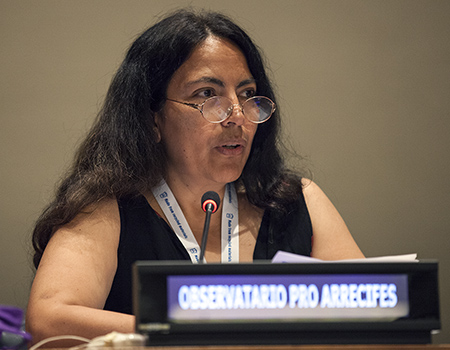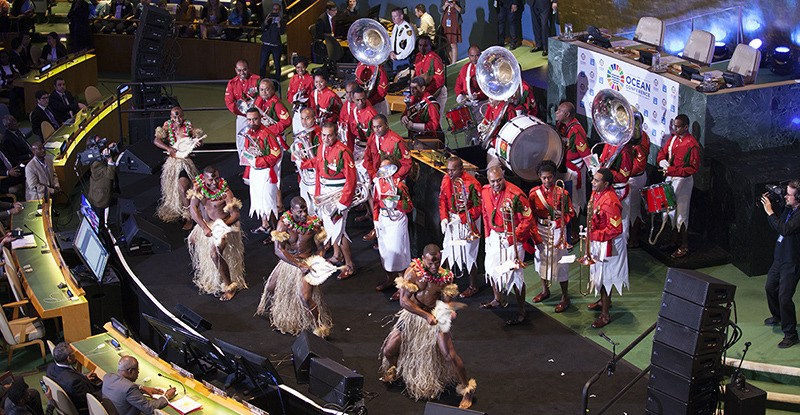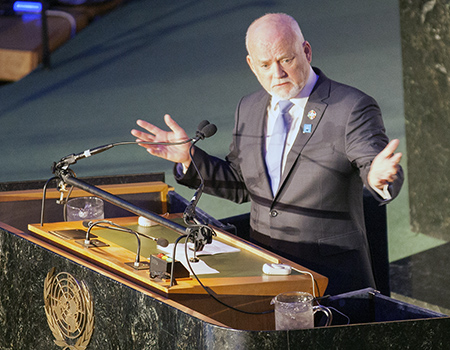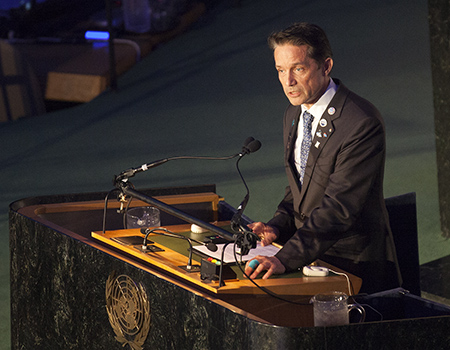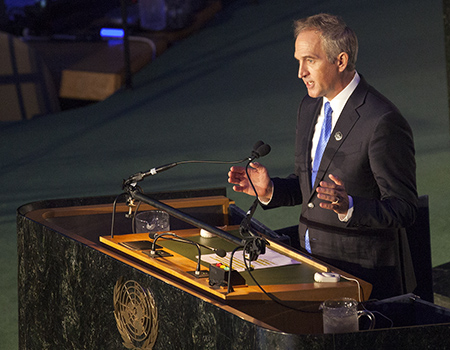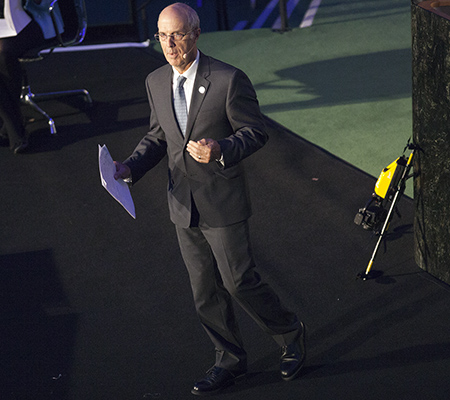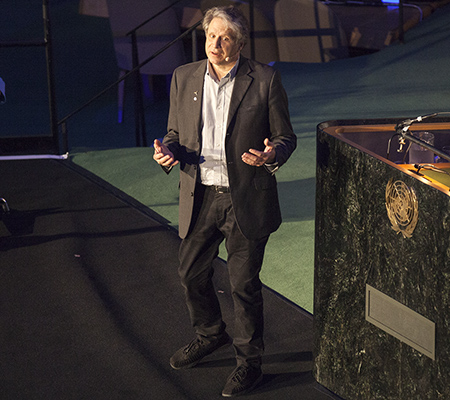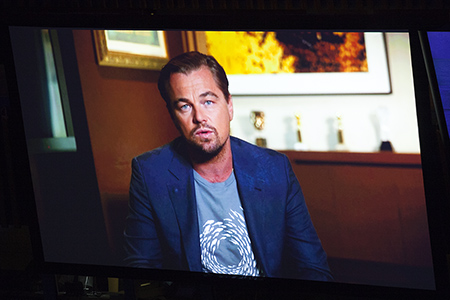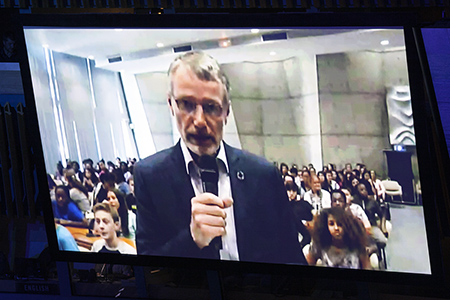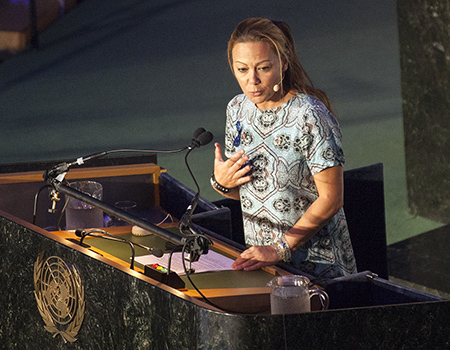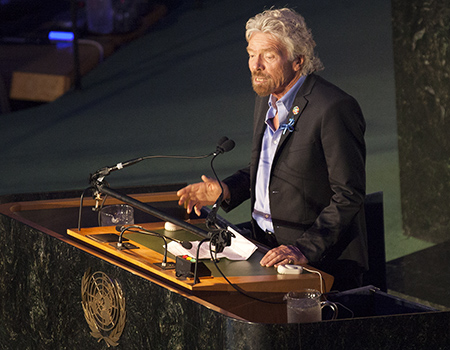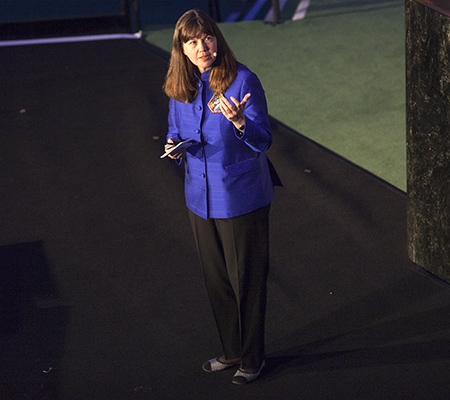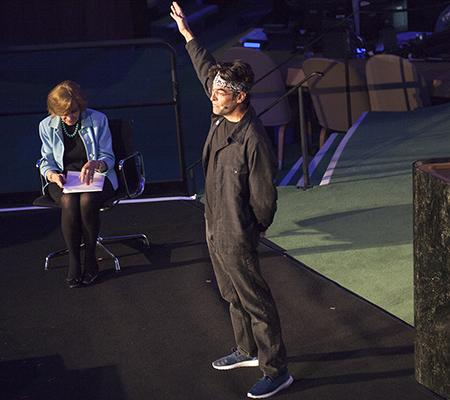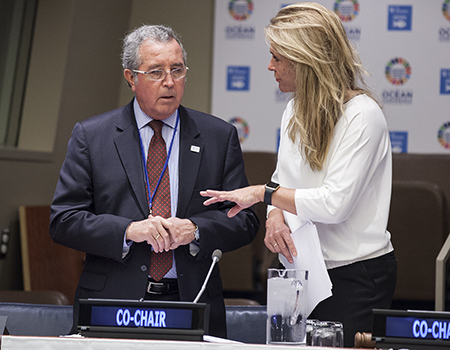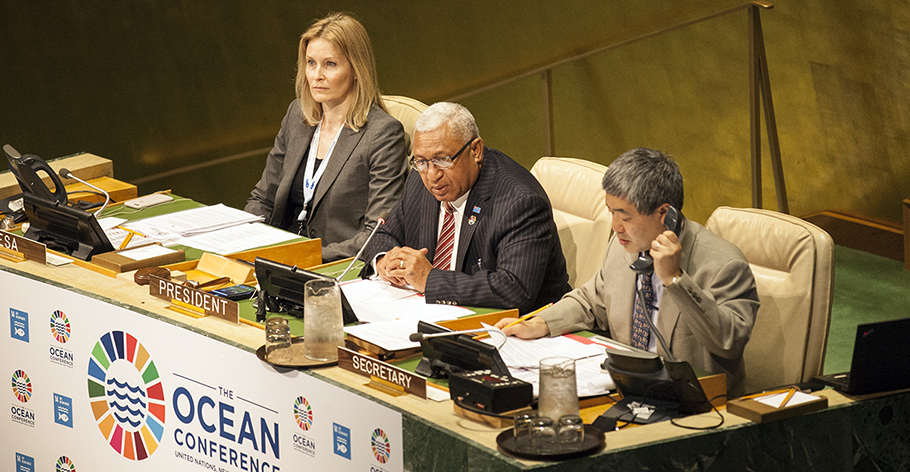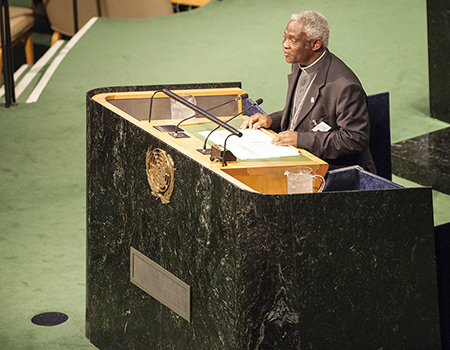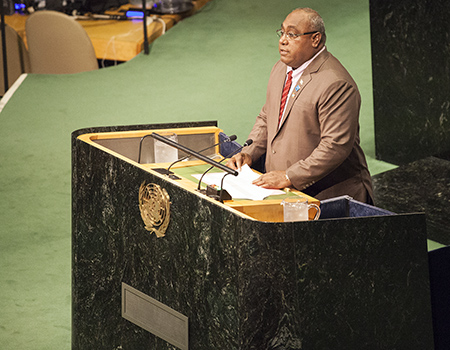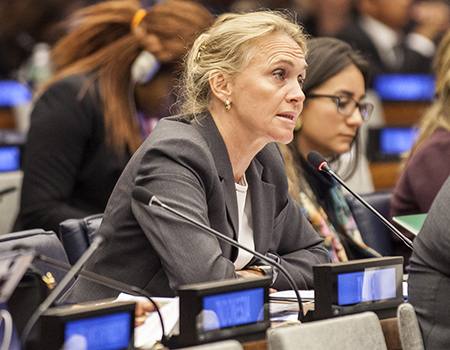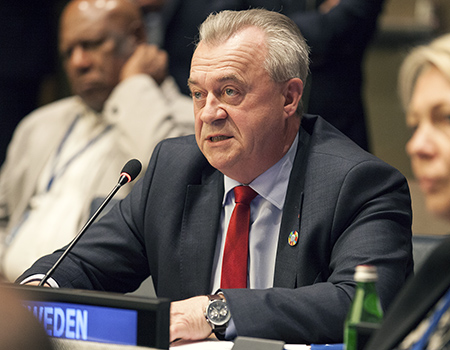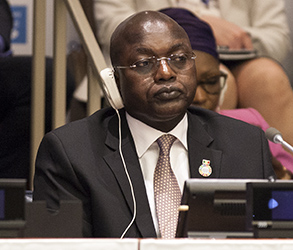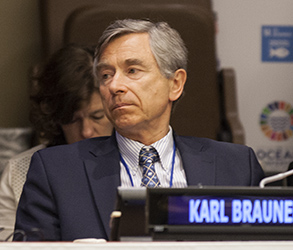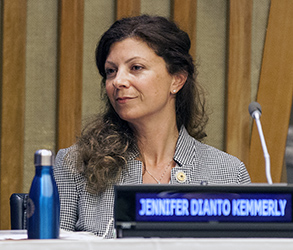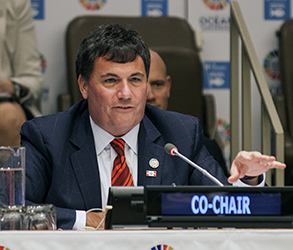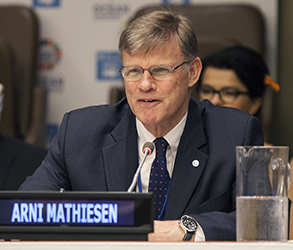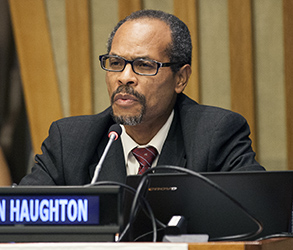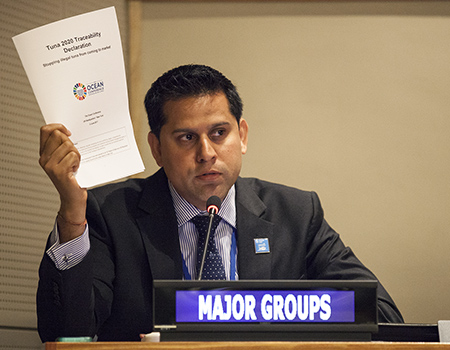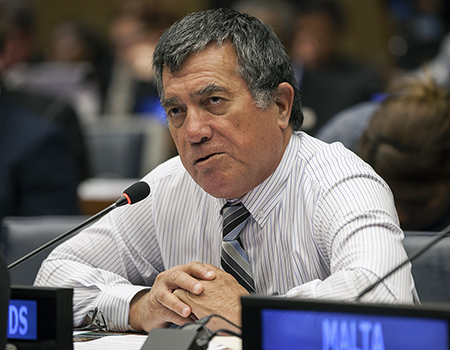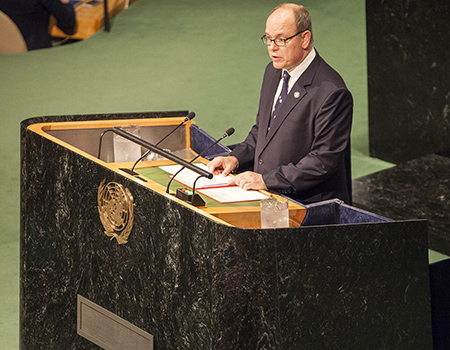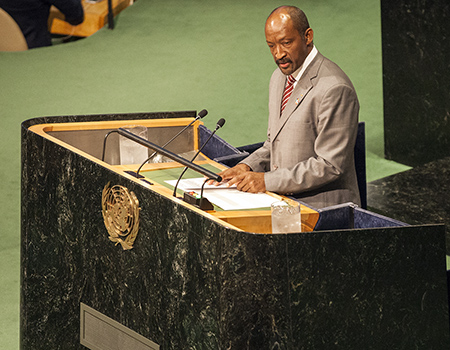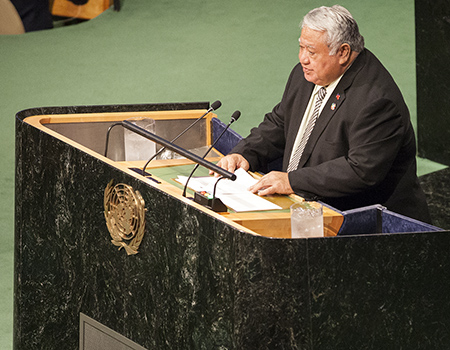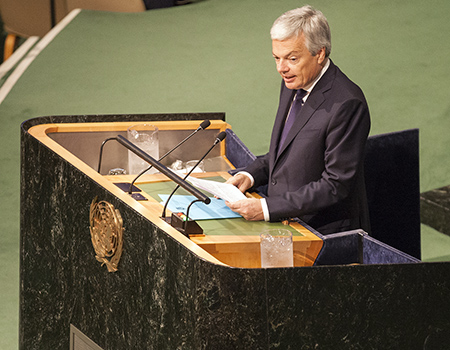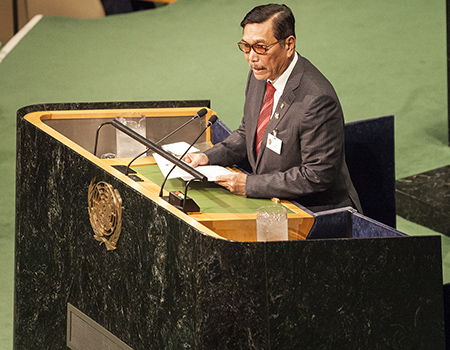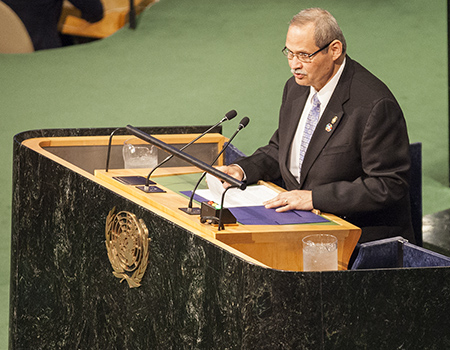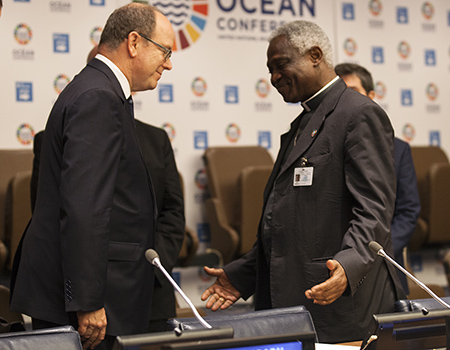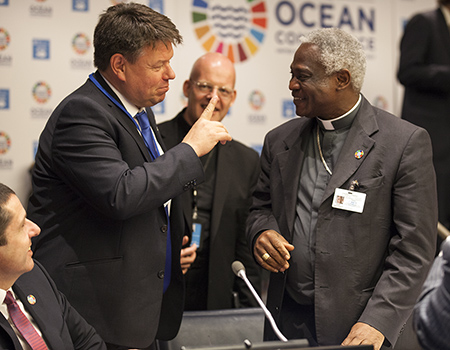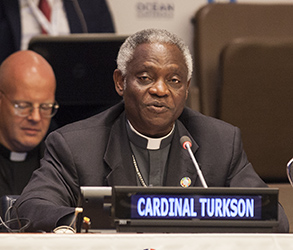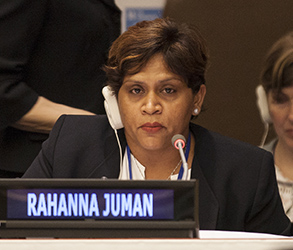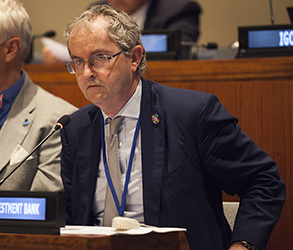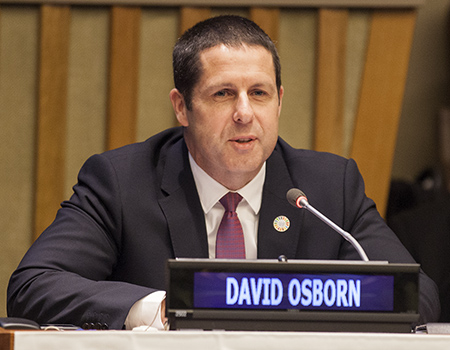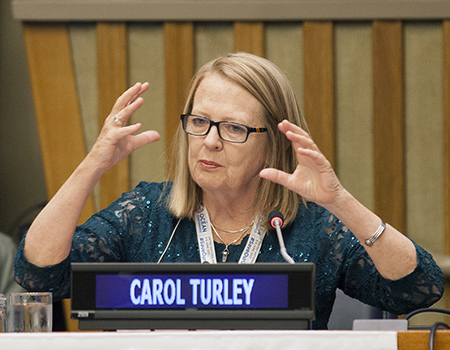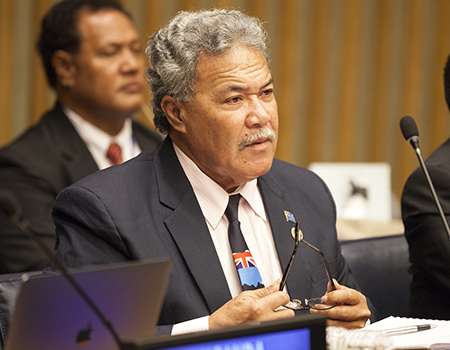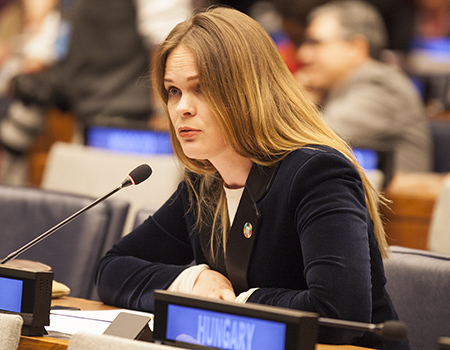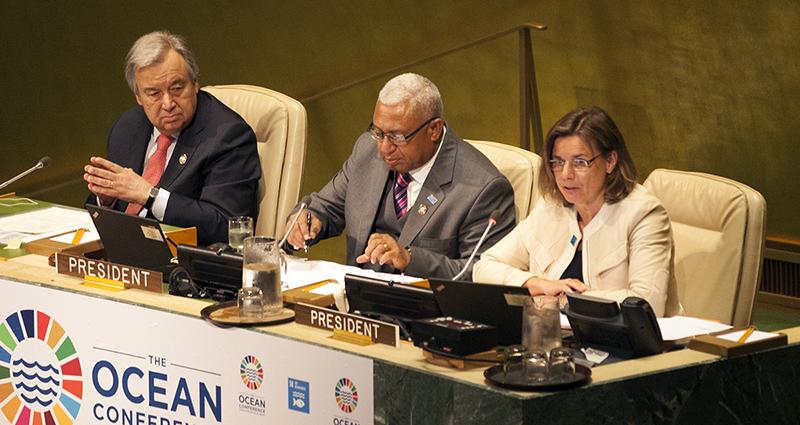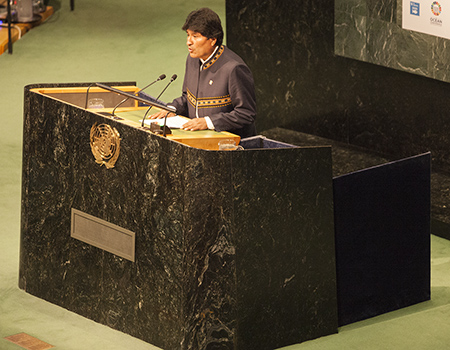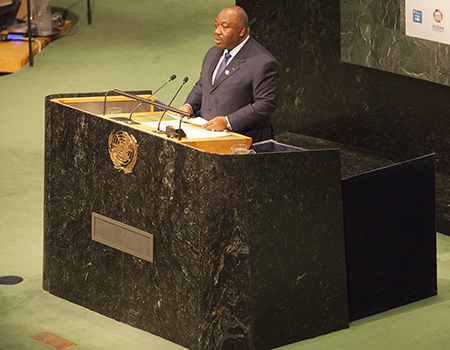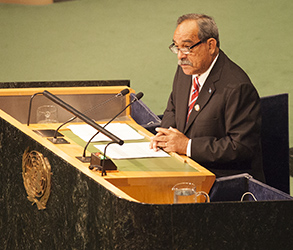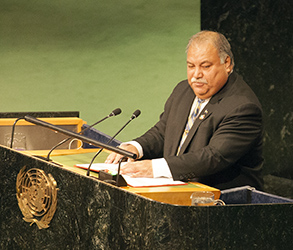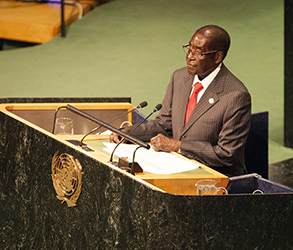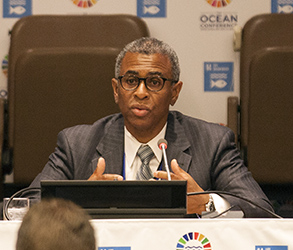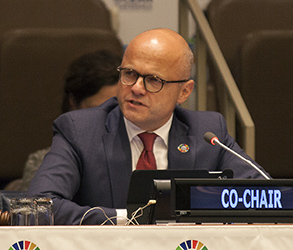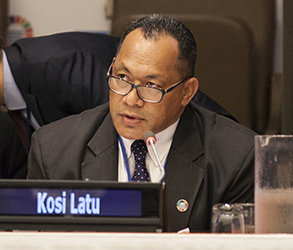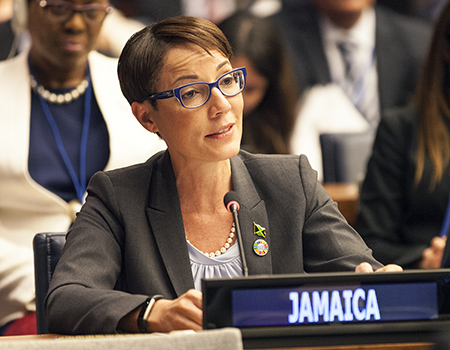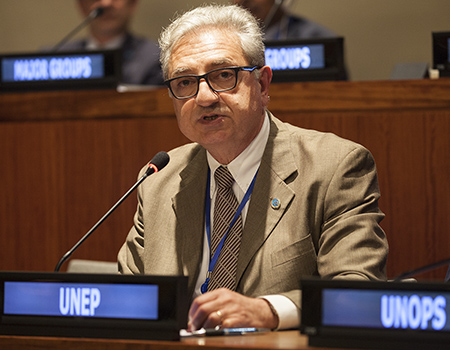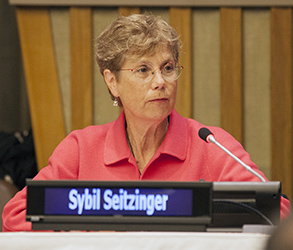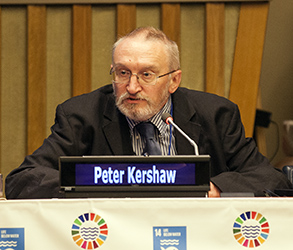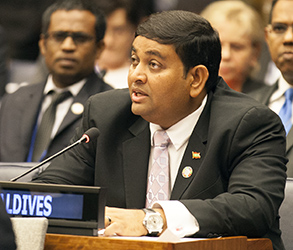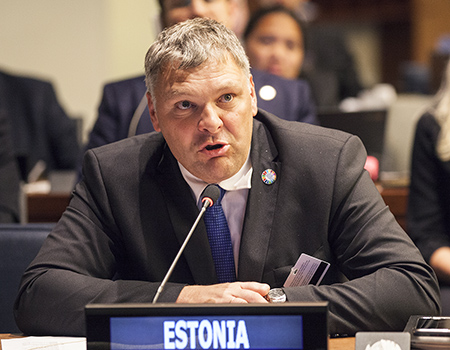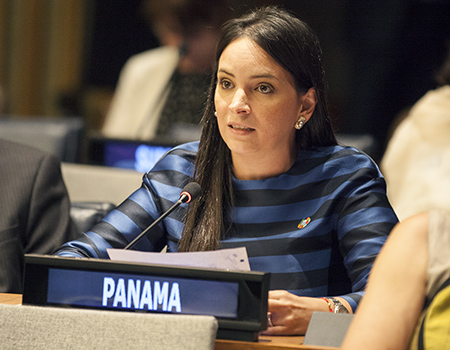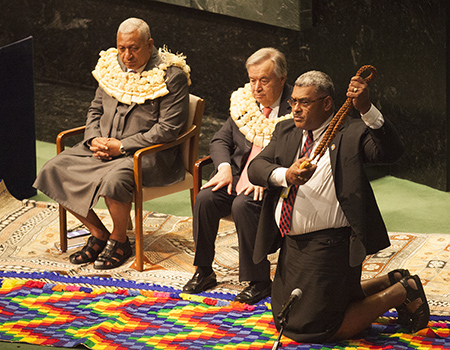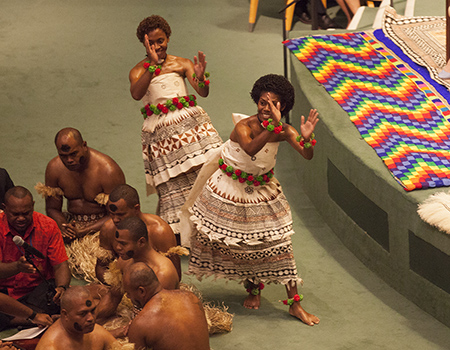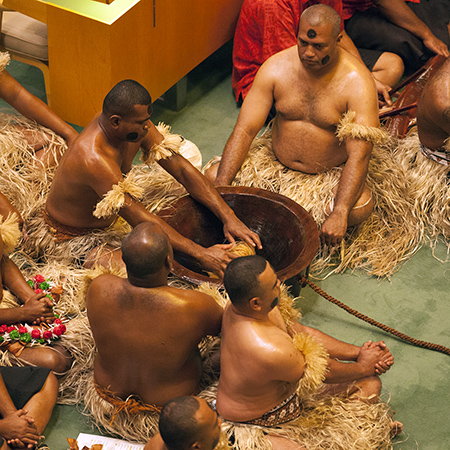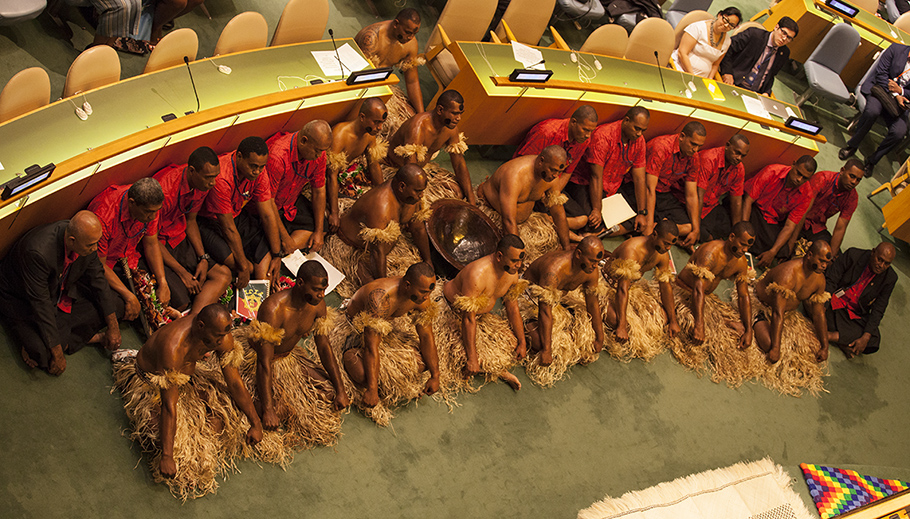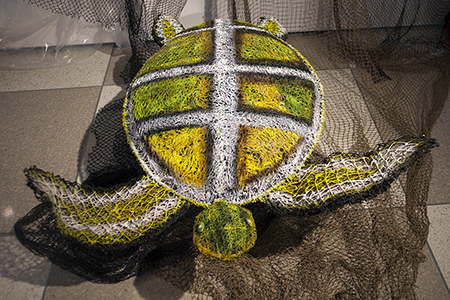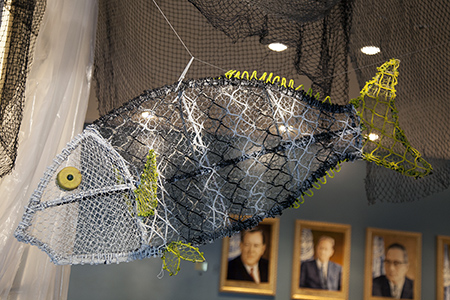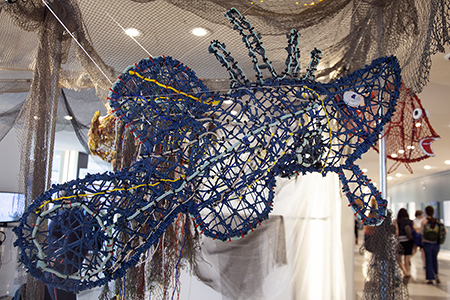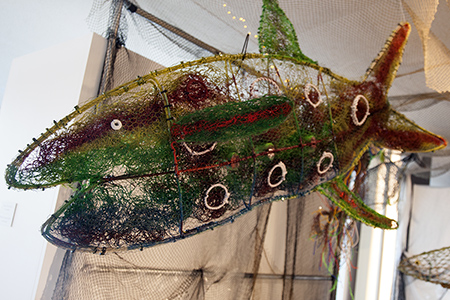| | |
|
On Friday morning, a partnership dialogue focused on enhancing the conservation and sustainable use of oceans and their resources by implementing international law as reflected in the UN Convention on the Law of the Sea (UNCLOS). Participants highlighted the key role of effective implementation of UNCLOS in achieving SDG 14; and challenges regarding universal participation, and uneven and ineffective implementation and enforcement.
Plenary continued with the general debate; heard reports from the partnership dialogues; and adopted the conference report and the Call for Action as agreed during the intergovernmental consultations. The US: noted it did not support reference to technology transfer, reaffirming that strong protection and enforcement of intellectual property rights provides the incentives needed to foster innovation; disassociated itself from the call to accelerate work to complete World Trade Organization (WTO) negotiations on fisheries subsidies with special and differential treatment for developing countries and LDCs, explaining that WTO independence must be respected; and reiterated the recent announcement of his country's withdrawal from the Paris Agreement on climate change. France welcomed the support for the Paris Agreement indicated by its ratification by a majority of the world. The Russian Federation distanced itself from language on WTO negotiations on fisheries subsidies, highlighting the complexity and sensitive nature of the topic and the need to address it under the WTO. Egypt registered its reservation on language implying that invasive alien species (IAS) are due solely to human activities, noting it is factually incorrect as there are other causes, including climate change. The EU emphasized the universal and unified character of UNCLOS as the legal framework for all ocean-related activities.
General Assembly President Peter Thomson, Fiji, affirmed that the conference: generated broad momentum for implementing all the SDGs; showed that ocean and climate health are “two sides of the same coin”; spurred WTO negotiators to address harmful subsidies; and emphasized the role of small-scale fisheries in sustainable blue economy. Co-President Josaia Voreqe (Frank) Bainimarama, Fiji, noted that voluntary commitments doubled during the week counting: 44% of commitments from governments, 19% from NGOs, 9% from the UN and 9% from the private sector; with the highest number of commitments in the North Atlantic and South Pacific, relating to marine ecosystems, pollution and science. Co-President Isabella Lövin, Sweden, congratulated delegates, in particular Fiji, for placing the ocean at the center of the political agenda as a matter of human survival, in light of the combined pressures of marine litter, ocean acidification and overfishing. She welcomed Kenya and Portugal’s offers to host the next conference in 2020, and called for a “strong home for the ocean at the UN” and leadership by the UN Secretary-General to drive SDG 14 forward. She officially gaveled the conference to a close at 5:44 pm, following which, delegates participated in a cultural ceremony to close the conference.
|
|
|
IISD Reporting Services, through its Earth Negotiations Bulletin (ENB) Meeting Coverage, has provided daily reports and daily web coverage, and has provided a summary and analysis report in HTML and PDF.
Visit the web coverage for Friday, 9 June 2017
Photos by IISD/ENB | Mike Muzurakis
For photo reprint permissions, please follow instructions at our Attribution Regulations for Meeting Photo Usage Page
| |
| | |
| | |
|
On Thursday morning, plenary celebrated the World Oceans Day. Noting that the ocean makes Earth unique in the solar system, Co-President Isabelle Lövin said World Oceans Day celebrates our dream of a healthy and productive ocean. UN General Assembly President Peter Thomson said World Oceans Day also celebrates our awareness of the need to “right the wrongs” we have done to the ocean. Noting more than 1,000 voluntary commitments submitted, he said the conference is a turning point towards protecting the ocean for posterity. Plenary heard from scientists, ocean researchers, filmmakers, activists, conservationists, private entrepreneurs and community and youth representatives on initiatives to reverse ocean degradation.
In the afternoon, plenary continued the general debate. Member States showcased efforts to expand coverage of marine protected areas (MPAs) and reduce or ban single-use plastics, regional initiatives, and innovative financial mechanisms for sustainable ocean management. Many called for timely completion of the negotiations for an international legally binding instrument on marine biodiversity beyond national jurisdiction.
A partnership dialogue was devoted to increasing scientific knowledge, and developing research capacity and transfer of marine technology. Participants addressed, among other issues, the need for: well-funded, independent research, and better use and transfer of existing technologies; science to defend long-term societal interests; understanding marine ecosystems’ and species’ responses to climate change; science-based policy making; and capacity building and technology transfer, according to developing countries’ needs, rather than externally identified priorities.
|
|
|
IISD Reporting Services, through its Earth Negotiations Bulletin (ENB) Meeting Coverage, is providing daily reports, daily web coverage and a summary and analysis report in English and French from the Ocean Conference.
Visit the web coverage for Thursday, 8 June 2017
| |
| | |
| | |
|
On Wednesday, plenary continued the general debate. Member States drew attention to institutional developments for implementation of the 2030 Agenda for Sustainable Development; highlighted commitments to combat illegal, unreported and unregulated (IUU) fishing and to increase coverage of marine protected areas (MPAs) in their territorial waters; and stressed the importance to fully implement the Addis Ababa Action Agenda on financing for development and proceed with subsidies’ reform.
In the morning, a partnership dialogue addressed making fisheries sustainable. Participants discussed the role of MPAs in sustainable fisheries and criteria for other area-based conservation measures; challenges related to IUU fishing and fisheries subsidies; and cooperation and partnerships to build sustainable fisheries.
In the afternoon, a partnership dialogue focused on increasing economic benefits to Small Island Developing States (SIDS) and Least Developed Countries (LDCs) and providing access for small-scale artisanal fishers to marine resources and markets. Participants addressed the role of small-scale fishing in the economies of SIDS and LDCs and in communities’ livelihoods; prerequisites for improving market access, including in relation to infrastructure development, access to technology and organization through cooperatives; and diversification of local ocean economies beyond fisheries.
|
|
|
IISD Reporting Services, through its Earth Negotiations Bulletin (ENB) Meeting Coverage, is providing daily reports, daily web coverage and a summary and analysis report in English and French from the Ocean Conference.
Visit the web coverage for Wednesday, 7 June 2017
| |
| | |
| | |
|
On Tuesday, plenary continued the general debate. Member States outlined commitments on increasing marine protected area coverage, reducing or banning plastic bags and microplastics, enhancing integrated coastal management, and improving pollution control, among others.
In the morning, a partnership dialogue addressed managing, protecting, conserving and restoring marine and coastal ecosystems. Participants highlighted the important role of marine and coastal ecosystems and marine protected areas in terms of the entire sustainable development agenda, further noting the need for community empowerment, stakeholder involvement, science-based and coherent policies, and partnerships.
In the afternoon, a partnership dialogue addressed minimizing and addressing ocean acidification, stressing the importance of the Paris Agreement on climate change to mitigate ocean acidification, sharing local adaptation strategies, and underscoring the role of marine protected areas for ecosystem restoration and resilience.
|
|
|
IISD Reporting Services, through its Earth Negotiations Bulletin (ENB) Meeting Coverage, is providing daily reports, daily web coverage and a summary and analysis report in English and French from the Ocean Conference.
Visit the web coverage for Tuesday, 6 June 2017
| |
| | |
| | |
|
The Ocean Conference opened on Monday, 5 June 2017. Plenary addressed organizational matters and heard statements from high-level Member State representatives and UN officials. In the afternoon, a partnership dialogue focused on addressing marine pollution.
Plenary elected Josaia Voreqe (Frank) Bainimarama, Prime Minister of Fiji, and Isabella Lövin, Minister for International Development Cooperation and Climate and Deputy Prime Minister of Sweden, as Conference Co-Presidents.
Recalling the borderless nature of the ocean, Co-President Isabella Lövin expressed hope for the conference to be the “game changer” the ocean needs. Co-President Frank Bainimarama highlighted the threats of climate change and ocean litter, noting that greedy nations and commercial interests threaten livelihoods in small island developing states.
UN Secretary-General António Guterres pointed towards ways SDG 14 (Conserve and sustainably use the oceans, seas and marine resources for sustainable development) serves as a roadmap towards a clean ocean, including: ending the dichotomy between economic activities and ocean health; building strong partnerships and political leadership based on the existing legal framework, such as on MPAs and fisheries management; making new funding commitments; deepening our knowledge base; and sharing best practices. General Assembly President Peter Thomson (Fiji) considered the UN Ocean Conference the “best opportunity we will ever have to reverse the cycle of decline in which human activities have put the ocean.”
In the afternoon, a partnership dialogue on addressing marine pollution shared perspectives on challenges and solutions on marine litter, including addressing land-based pollution and reducing plastics and microplastics production and consumption.
|
|
|
IISD Reporting Services, through its Earth Negotiations Bulletin (ENB) Meeting Coverage, is providing daily reports, daily web coverage and a summary and analysis report in English and French from the Ocean Conference.
Visit the web coverage for Monday, 5 June 2017
| |
| | |






